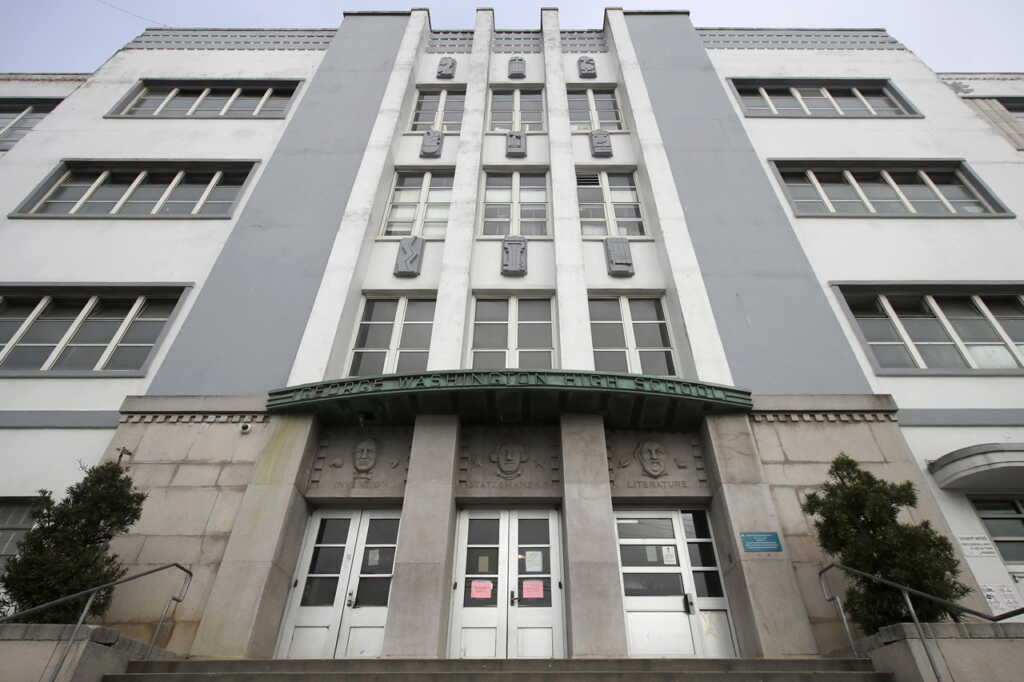The San Francisco Board of Education is working to rid one of the oldest — and most prestigious — public high schools in the country of its merit-based admissions system, arguing meritocracy is racist.
Lowell, until last fall, was the only school in the San Francisco Unified School District where a student’s admission was dependent upon his or her grade-point average and test scores. In October, the board temporarily suspended the system and replaced it with the randomized lottery program used by all the other public schools in the SFUSD.
“Meritocracy based on standardized testing — I’m just gonna say it, in this day and age, we cannot mince words — those are racist systems,” said Alison Collins, vice president of the city’s Board of Education. “If you’re gonna say that merit is, like, fair, it’s the antithesis of fair and it’s the antithesis of just.”
“You can’t use equity or you can’t, you know, talk about social justice and then say that you want to have a selective school that keeps certain kids out from the neighborhoods that you think are dangerous,” she continued. “Like, that’s all kind of Trumpian language.”
Four members of the school board introduced a measure to make permanent the temporary switch to a random lottery, arguing it is a necessary step to combat the lack of diversity and “pervasive systemic racism” at Lowell, according to the San Francisco Chronicle.
If the proposal — which is up for a vote Feb. 9 — is approved, Lowell would become like every other school in the SFUSD.
It’s worth noting the school, founded in 1856, is already diverse and fairly reflective of the district. Of the school’s 2,900 students, 51% are Asian, 18% are white, 12% are Latino, 6% are Filipino, and 2% are black. The district’s overall enrollment is, by comparison, 33% Asian, 28% Latino, 15% white, 6% black, and 4% Filipino. Black Americans make up 5.2% of the entire San Francisco population.
Nevertheless, the San Francisco Alliance of Black School Educators “wholeheartedly” supports the effort to eliminate merit-based admissions.
“For more than 30 years,” teacher Virginia Marshall said during a special meeting Tuesday, “Lowell has brutalized mentally our African-American students.”
Lowell student Jessi Yu also embraced switching to a random lottery, saying, “I think it’s really, really time for change. I know that this resolution is really controversial and I want to say I’m really, really proud of my elected leaders.”
Other students, though, see it as an unfortunate shift.
“Lowell is a beacon of hope for low-income students like myself,” explained Amy Chang. “It means that, if you try hard enough, you can receive an education on par or better than elite private schools. The lottery system is inherently flawed.”
One Lowell graduate, Lisa Li Moye, said, “At MLK, I was bullied and having the goal of getting into Lowell kept me from having suicidal thoughts. After being admitted and surrounded by driven students, I got out of this dark place. I want to say Lowell saved my life.”
The consideration over Lowell’s admissions system comes as the SFUSD is beginning the process of renaming 44 schools, including Lowell as well as those named after former Presidents George Washington and Abraham Lincoln.
In addition, the SFUSD’s Art Department is setting its sights on acronyms, which it determined are “a symptom of white supremacy culture,” KGO-TV reported. The director of the department, Sam Bass, said the district will begin “prioritizing anti-racist arts instruction,” too.
The SFUSD Art Department has already eliminated the acronym “VAPA,” which stands for visual and performing arts.
Bass said the “use of so many acronyms within the educational field often tends to alienate those who may not speak English to understand the acronym.”
The San Francisco Board of Education is focusing on all these things as their classrooms remain closed entirely for in-person learning. In fact, just this week, San Francisco City Attorney Dennis Herrera — with the support of Mayor London Breed — filed a lawsuit against the SFUSD for violating California law that took effect last September, requiring a clear plan from school districts to resume in-person instruction. Herrera rebuked the SFUSD for spending its time on issues like renaming schools instead of prioritizing re-opening classrooms.
“It’s a shame it has come to this,” said Herrera. “The Board of Education and the school district have had more than 10 months to roll out a concrete plan to get these kids back in school. So far, they have earned an ‘F.’ Having a plan to make a plan doesn’t cut it.”
SFUSD Superintendent Vincent Matthews has dismissed the suit as “frivolous.”



